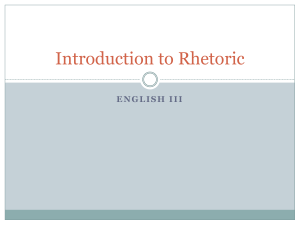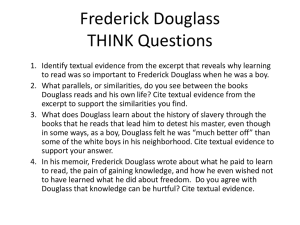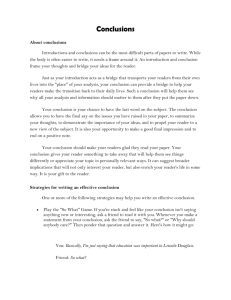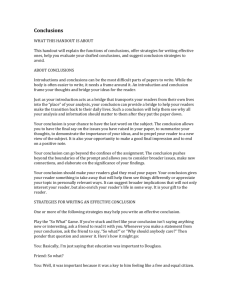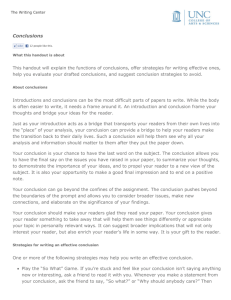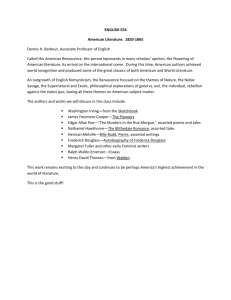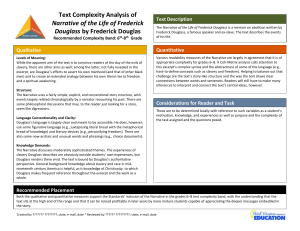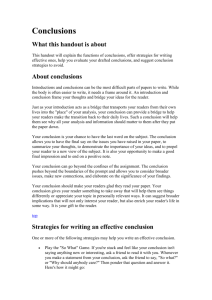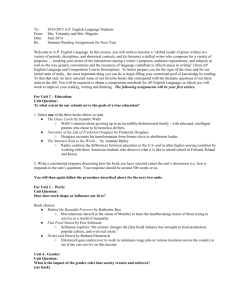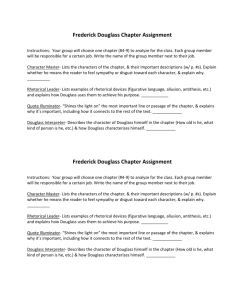Frederick Douglass essay: Analyze how Douglass appeals to ethos
advertisement
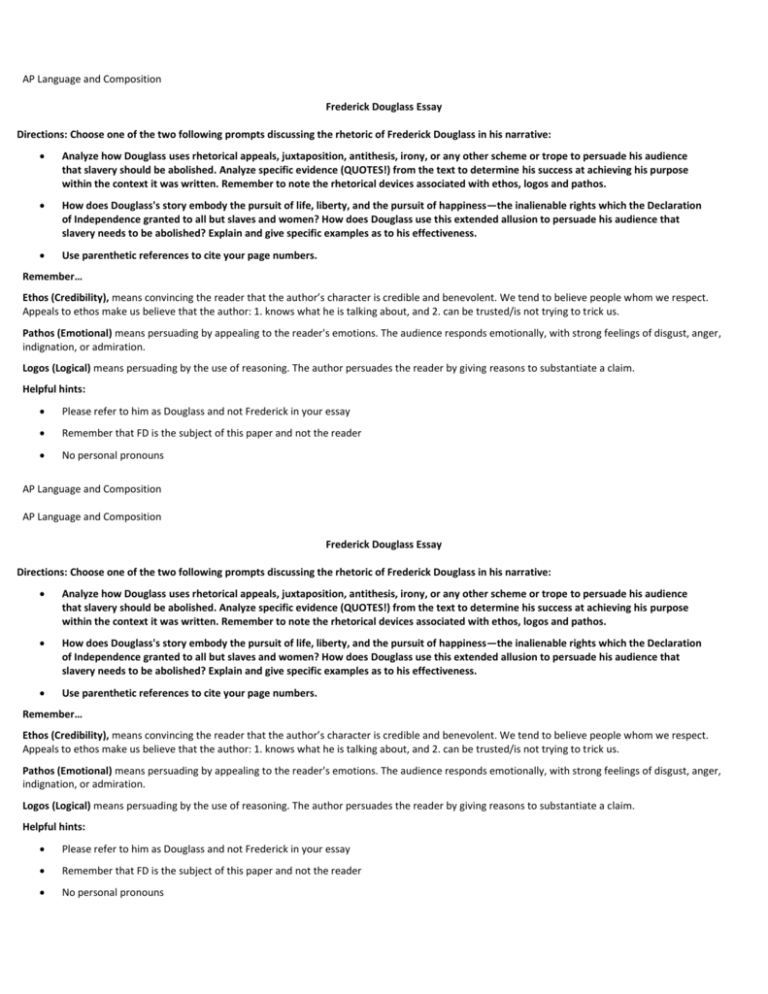
AP Language and Composition Frederick Douglass Essay Directions: Choose one of the two following prompts discussing the rhetoric of Frederick Douglass in his narrative: Analyze how Douglass uses rhetorical appeals, juxtaposition, antithesis, irony, or any other scheme or trope to persuade his audience that slavery should be abolished. Analyze specific evidence (QUOTES!) from the text to determine his success at achieving his purpose within the context it was written. Remember to note the rhetorical devices associated with ethos, logos and pathos. How does Douglass's story embody the pursuit of life, liberty, and the pursuit of happiness—the inalienable rights which the Declaration of Independence granted to all but slaves and women? How does Douglass use this extended allusion to persuade his audience that slavery needs to be abolished? Explain and give specific examples as to his effectiveness. Use parenthetic references to cite your page numbers. Remember… Ethos (Credibility), means convincing the reader that the author’s character is credible and benevolent. We tend to believe people whom we respect. Appeals to ethos make us believe that the author: 1. knows what he is talking about, and 2. can be trusted/is not trying to trick us. Pathos (Emotional) means persuading by appealing to the reader's emotions. The audience responds emotionally, with strong feelings of disgust, anger, indignation, or admiration. Logos (Logical) means persuading by the use of reasoning. The author persuades the reader by giving reasons to substantiate a claim. Helpful hints: Please refer to him as Douglass and not Frederick in your essay Remember that FD is the subject of this paper and not the reader No personal pronouns AP Language and Composition AP Language and Composition Frederick Douglass Essay Directions: Choose one of the two following prompts discussing the rhetoric of Frederick Douglass in his narrative: Analyze how Douglass uses rhetorical appeals, juxtaposition, antithesis, irony, or any other scheme or trope to persuade his audience that slavery should be abolished. Analyze specific evidence (QUOTES!) from the text to determine his success at achieving his purpose within the context it was written. Remember to note the rhetorical devices associated with ethos, logos and pathos. How does Douglass's story embody the pursuit of life, liberty, and the pursuit of happiness—the inalienable rights which the Declaration of Independence granted to all but slaves and women? How does Douglass use this extended allusion to persuade his audience that slavery needs to be abolished? Explain and give specific examples as to his effectiveness. Use parenthetic references to cite your page numbers. Remember… Ethos (Credibility), means convincing the reader that the author’s character is credible and benevolent. We tend to believe people whom we respect. Appeals to ethos make us believe that the author: 1. knows what he is talking about, and 2. can be trusted/is not trying to trick us. Pathos (Emotional) means persuading by appealing to the reader's emotions. The audience responds emotionally, with strong feelings of disgust, anger, indignation, or admiration. Logos (Logical) means persuading by the use of reasoning. The author persuades the reader by giving reasons to substantiate a claim. Helpful hints: Please refer to him as Douglass and not Frederick in your essay Remember that FD is the subject of this paper and not the reader No personal pronouns

